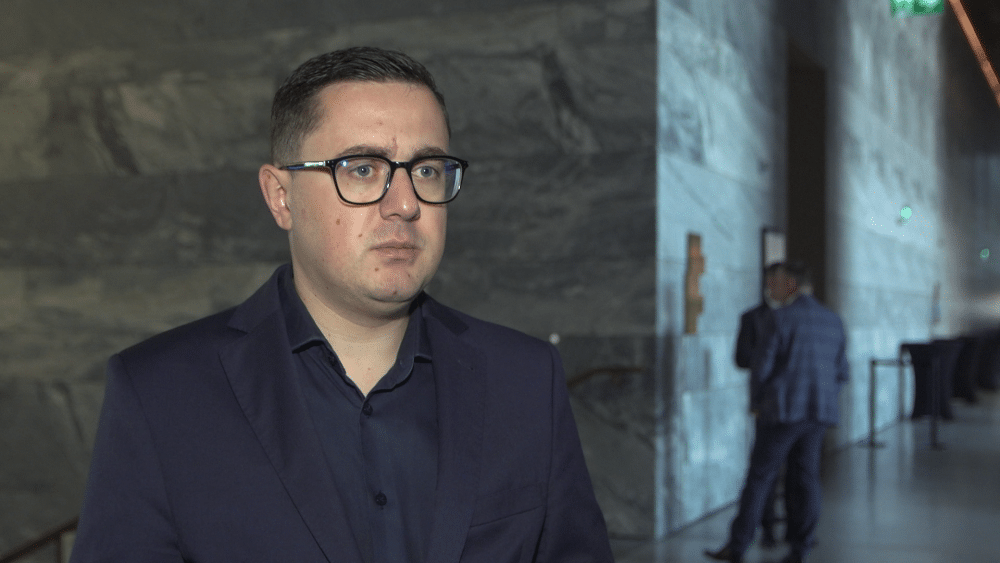- Construction companies have a key role to play in the energy transformation – says the Deputy Minister of Climate and Environment, Miłosz Motyka. As he points out, the government plans to facilitate this by simplifying procedures related to investments in renewable energy sources and promoting greater involvement of domestic companies in energy transformation projects. This will be facilitated by the amendment to the offshore law, which is expected to appear within the next few weeks.
- The EU’s energy policy, which is also implemented by Poland – in accordance with sustainable development and energy transformation, based on security and stability of energy supply – is both a challenge and an opportunity for the construction industry. On the one hand, it completely changes the functioning model of this sector, which has so far been based on high-emission sources. Construction must use green and cheap sources, which are only now being built in Poland, so dialogue with the government, cooperation with the administration and other sectors is absolutely key. On the other hand, it is an opportunity for a cleaner environment and lower energy costs, an opportunity to conduct the energy transformation process in a fair manner – says Miłosz Motyka to the Newseria Biznes agency.
Construction – responsible for over 1/3 of global CO2 emissions – is one of the industries with the greatest impact on the environment and climate. Besides emissions from building use, the so-called built-in carbon footprint, which consists of construction industry activity related to the extraction of raw materials, production and transport of materials and construction or demolition processes, is also important. All this makes minimizing the negative impact and carbon footprint in this sector one of the most effective ways to mitigate the climate crisis. On the other hand, the construction industry also plays a key role in the whole process of energy transformation and will have a decisive importance in its implementation.
- However, without dialogue with industry, without its suggestions as to how to carry out this transformation, this process simply won’t happen and there won’t be effective energy use – says the Deputy Minister of Climate and Environment.
What’s important, actions aimed at sustainable development and energy transformation bring not only challenges but also benefits – ecological and economic – to the construction industry. Despite rather high costs associated with them, investors, contractors and material manufacturers can count on savings resulting from basing on renewable energy or the possibility of reusing recycled raw materials in accordance with the principles of circular economy, which reduces their procurement costs.
The Vice-President of Ministry of Climate and Environment (MKiŚ) points out that the ministry is working on solutions, including in the amendment to the Renewable Energy Sources Act, which are to support the construction industry in this process.
- Support for Polish construction companies should be a priority for the whole government at this moment – says Miłosz Motyka. –As a ministry, we clearly talk about simplifying procedures in the field of energy transformation, about simplifying and shortening procedures related to renewable energy sources.
He emphasizes that today Poland has one of the longest investment processes in RES in Europe – the process of installing, procedural agreements, implementation and connection takes definitely too long.
- We want to reduce it by half within the framework of two bills we are proceeding. We believe we are ready as a government administration to process these applications faster. We are ready as local governments to talk to investors faster, and the industry is ready to adapt to this. So we are able to reduce this time by almost half from several years to two for the benefit of Polish energy and the Polish economy – announces the deputy minister.
Another change that will help the construction industry benefit from the energy transformation is the promotion of local content, or the participation of the Polish industry in large investments carried out by foreign entities.
- Every subsequent legal act, every regulation and law must contain in its assumptions support for local content and Polish companies. And such regulation, which we will present within the next few weeks, will be the amendment to the law on offshore wind farms. There, we want to strongly focus on local content, because it is the largest energy project in the history of Poland. Without the participation of Polish construction companies, we will lose the chance to keep the funds invested in this project in Poland and further develop the Polish industry. So this will be one of the most important laws that will also support the Polish construction industry – announces Miłosz Motyka.
Offshore wind farms in the Baltic Sea are considered one of the strategic energy investments and a program worth about 130 billion PLN to build them is expected to drive the entire economy. According to the initial “Energy Policy until 2040”, the installed capacity offshore is expected to reach about 5.9 GW by the end of this decade and 11 GW by 2040.
According to the sector agreement from 2021, during the pre-implementation, installation and operation phase for the offshore wind farms (MFW) projects, the local content level was set at at least 20-30%. In the next phase, within the programs implemented until 2030, this share is to increase to at least 45%, and after this date it should be at least 50%. According to information provided by the Pomeranian Employers in June this year, this share was about 7-9%. Therefore, the organization appealed to Prime Minister Donald Tusk to appoint a government representative for offshore economy and local content in the field of offshore wind energy, whose tasks would include, among others, supervision over the implementation of the sector agreement.
